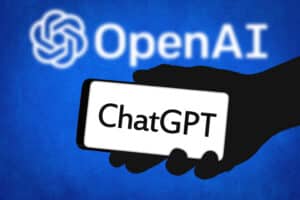ChatGPT Trademark: OpenAI Contests Trademarks It Doesn’t Own

OpenAI has had a difficult time securing intellectual property rights as of late. While the U.S. Patent and Trademark Office (USPTO) has granted the company registrations for GPT-3 and GPT-4, it refuses to grant them the GPT or ChatGPT trademarks. Even without rights over these terms, though, OpenAI is trying to stop others from using them.
As of early May 2024, OpenAI was still trying to reverse the USPTO’s decisions to deny trademark registration for ChatGPT and GPT. It’s unclear how successful these attempts will be, but in February 2023, two other parties sought intellectual property rights for similar terms. Judging from OpenAI’s response — filing a notice of opposition against both — they have high hopes that their efforts will not be in vain.
Other Parties Seek ChatGPT Trademarks
On February 23, 2023, State Bull Company Limited filed an application seeking the “ChatGPT” trademark for tobacco-related products. Just one day later, a man named Robert Cachro similarly sought rights over the term “dirtyGPT.” On May 1, 2024, OpenAI filed a trademark opposition against both. And while these may seem like blatant ripoffs of OpenAI’s artificial intelligence software, the USPTO may not see it this way.
That’s because OpenAI has thus far been unable to secure either the “GPT” or “ChatGPT” trademark. While any company would want to trademark a product name that made them famous, both the components of this name are descriptive in nature. “Chat” means to exchange remarks over a computer network, and “GPT” means “generative pre-trained transformers.”
Since both terms are widely used in other contexts, the USPTO believes the “GPT” and “ChatGPT” trademarks would be merely descriptive. What about the other two companies seeking intellectual property rights over similar terms? As it turns out, their efforts have the potential to be more successful than those of OpenAI.
Could Other Companies Have More Success Trademarking GPT?
While it might sound strange, the non-OpenAI applicants could potentially have better luck with ChatGPT trademarks. This is because the rights they’re seeking are different trademark types. For instance, while “ChatGPT” is just the combination of two terms that describe the tool that OpenAI offers, the rights sought by State Bull Company would use the ChatGPT trademark on tobacco products.
Clearly, neither “chat” nor “GPT” has anything to do with the tobacco industry. This means the sought-after trademark would be arbitrary in nature. Arbitrary trademarks are among the strongest forms of intellectual property protection available. For instance, think of the “Apple” trademark. Since apples have nothing to do with computers, “Apple” is an arbitrary trademark. Any other computer company attempting to use the work would be blatantly infringing. And since it would be descriptive, an apple juice company could not register the same word.
When it comes to the dirtyGPT application, the applicant may encounter issues similar to ChatGPT. After all, both components of its name — “dirty” and “GPT” — are descriptive as well. They’re essentially wanting to offer an AI tool similar to ChatGPT that can give “dirty” answers. However, their registration could potentially be seen as a suggestive trademark — but a trademark examiner would need to review this.
What Happens Now?
If OpenAI owned the GPT or ChatGPT trademarks, each trademark opposition it filed would likely be successful. When it comes to dirtyGPT, they could clearly point to the GPT in the name as trademark infringement. Similarly, they could claim that approval of the State Bull Company Limited application would create trademark dilution — essentially weakening the link between “ChatGPT” and OpenAI in the minds of consumers.
Of course, OpenAI doesn’t own the GPT or ChatGPT trademarks. In their opposition notices, they make it clear that the company believes they have rights over these terms. They even go as far as to say that they have common law trademark rights over them. However, the USPTO hasn’t shown any indication that their decisions will be reversed.
Of course, it’s hard to argue against the points that OpenAI is trying to make. If you asked 99% of consumers about “ChatGPT,” they’d likely believe you were referring to OpenAI’s artificial intelligence software. Therefore, it’s possible that the USPTO decisions may be overturned. However, watching OpenAI strive to protect a ChatGPT trademark that it does not own will remain an interesting activity until that time.













